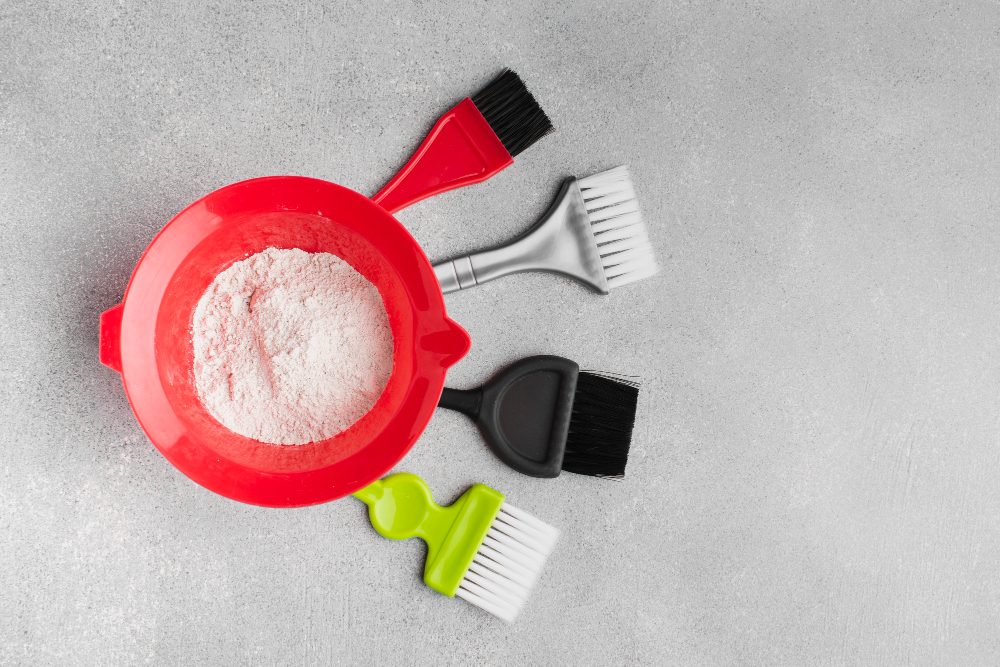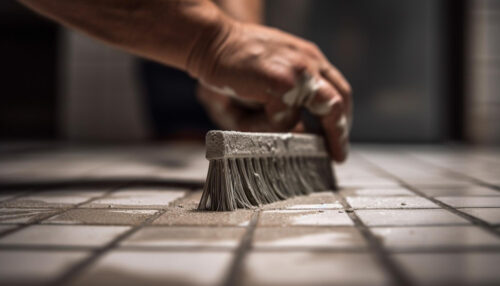
When undertaking a paving project, whether it’s a small backyard patio or a large commercial space, the finishing touches can make a significant difference.
One of the crucial elements in achieving a professional look is selecting the right brush for applying paving grout. This guide explores the criteria, options, and recommendations to help you choose the best brush for your paving grout needs.
Criteria for Choosing the Best Brush:
1. Bristle Material and Type:
– Natural vs. Synthetic Bristles: Natural bristles, typically made from animal hair, are best suited for solvent-based sealers and oils due to their ability to hold more liquid and spread it evenly. They can be delicate and require careful cleaning. Synthetic bristles, made from materials like nylon or polyester, are ideal for water-based sealers and acrylics as they are less absorbent and easier to clean, making them more durable over time.
– Bristle Shape: The shape of the bristles is crucial for effective grout application. Flat or angled bristles are suitable for spreading grout evenly into joints and along flat surfaces. Round-tipped brushes are better for applying grout to irregular surfaces and ensuring thorough coverage.
2. Handle Design:
– Comfort during use is essential, especially for larger projects. Look for brushes with ergonomic handles that provide a secure grip and minimize hand fatigue. Handles with grips or rubberized coatings can prevent slipping, even when wet or covered in grout.
3. Size and Width:
– The width of the brush should match the width of the joints you are grouting. A narrower brush is suitable for tighter joints and more intricate work, while a wider brush covers larger areas quickly. Consider having brushes of different widths on hand to accommodate various joint sizes and project scales.
4. Durability and Maintenance:
– Choose brushes with sturdy construction that can withstand the abrasive nature of grout and frequent cleaning with solvents or water. Brushes that shed bristles or lose their shape quickly can compromise the quality of your finish and increase cleanup time.
Options for Paving Grout Brushes:

1. Grout Float Brushes:
– These brushes typically feature dense foam or rubber heads that are effective for pressing grout into joints and smoothing the surface. Grout float brushes come in various sizes and shapes, including rectangular and wedge-shaped heads, to suit different joint widths and project requirements.
2. Pointing and Brickwork Brushes:
– Designed with stiff, angled bristles, these brushes are perfect for reaching into deep joints and ensuring thorough grout application. Pointing brushes are ideal for precise detailing and can handle thicker grout mixes effectively.
3. Hand Brushes:
– Smaller, handheld brushes with either natural or synthetic bristles are suitable for intricate work and detailing around edges and corners. These brushes offer greater control and precision, making them invaluable for finishing touches and touch-ups.
4. Soft Washing Brushes:
– Larger brushes with soft bristles are designed for applying and washing off excess grout from the surface without scratching. Soft washing brushes are useful for final cleanup and achieving a smooth, polished finish on paving surfaces.
Recommendations for Different Types of Projects:
1. For Small DIY Projects:
– Opt for a handheld brush with synthetic bristles and a comfortable grip. A medium-width brush will allow for precise application and easy cleanup, making it suitable for smaller areas and intricate designs.
2. For Large-Scale Paving Jobs:
– Consider using grout float brushes with rubber heads for efficient grout spreading and smoothing over larger areas. These brushes provide excellent coverage and help achieve a uniform finish quickly, reducing overall project time.
3. For Detailed or Intricate Work:
– Choose pointing or brickwork brushes with stiff, angled bristles for reaching into narrow or deep joints. These brushes ensure thorough grout application and precise detailing, making them indispensable for intricate paving patterns and designs.
Recommended Products:

M-D Building Products Grout Float Brush:
- This grout float brush features a comfortable handle and a dense foam pad for efficient grout application. Suitable for both DIY projects and professional use, it ensures smooth and even distribution of grout.
- Link: Amazon
MARSHALLTOWN Pointing Trowel:
- Known for its durability and precision, the MARSHALLTOWN pointing trowel is ideal for applying grout in tight spaces and achieving clean edges. The angled bristles ensure thorough coverage and smooth finish.
- Link: Amazon
Rubbermaid Professional Plus Grout Brush:
- Designed with sturdy synthetic bristles and a non-slip handle, this grout brush is perfect for scrubbing and detailing grout lines. It withstands frequent use and is easy to clean, making it a reliable choice for various paving projects.
OX Tools Pro Grout Brush:
- Featuring an ergonomic handle and durable nylon bristles, the OX Tools Pro grout brush is suitable for both applying grout and cleaning up excess. Its robust construction ensures longevity and consistent performance
Conclusion:
Choosing the best brush for paving grout involves considering factors such as bristle material, handle design, size, and intended use.
Whether you’re sealing a driveway, patio, working on a small DIY project, or intricate mosaic, the right brush will enhance efficiency and result in a polished finish.
By understanding these criteria and exploring the various options available, you can confidently select the ideal brush to meet your specific paving grout needs, ultimately achieving durable and aesthetically pleasing results. Investing in quality brushes tailored to your needs ensures professional-quality results and enhances the longevity and aesthetic appeal of your paved surfaces.
[…] sure to use a brush appropriate for your pool’s surface—nylon brushes for vinyl or fiberglass pools and stainless steel brushes for concrete or plaster pools. Thoroughly scrubbing […]